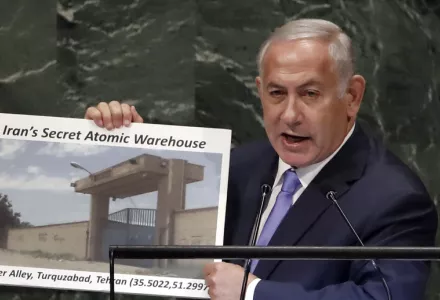
Introduction
An early challenge for the Biden Administration has been to determine and implement its Iran policy, including whether and under what conditions to return to the Joint Comprehensive Plan of Action (JCPOA). New information regarding Iran's past nuclear weapon program has emerged since the accord was reached in 2015, notably an archive of Iranian documents seized by Israel in 2018. This information merits consideration in shaping not only U.S. policy toward Iran but nonproliferation policy more broadly. Information from the archive was not part of the public debate or Congressional evaluation of the JCPOA in 2015; it should be taken into account as part of current efforts to revive or expand that accord or to design a new one.
The archive provides lessons on the role and relative value of export controls, inspections, and other international measures in slowing or preventing a country's ability to develop nuclear weapons, and how a determined country might evade such measures. The Wisconsin Project on Nuclear Arms Control convened a group of experts for two private roundtable discussions to identify these lessons, which are expressed in the findings below.
The group recognized that the archive provides a significant perspective of the Iranian nuclear effort, but reflects a past moment in time and does not cover all aspects of Iran's nuclear weapon-related activities. While some of the information revealed by the archive is new to the public, it may have been known to the U.S. and other governments. The archive provides additional detail about these activities and brings more information about them into the public domain. These details reinforce what is known about Iran's clandestine pursuit of tasks and materials necessary to make nuclear weapons, which the International Atomic Energy Agency (IAEA) has reported on extensively in the past.




